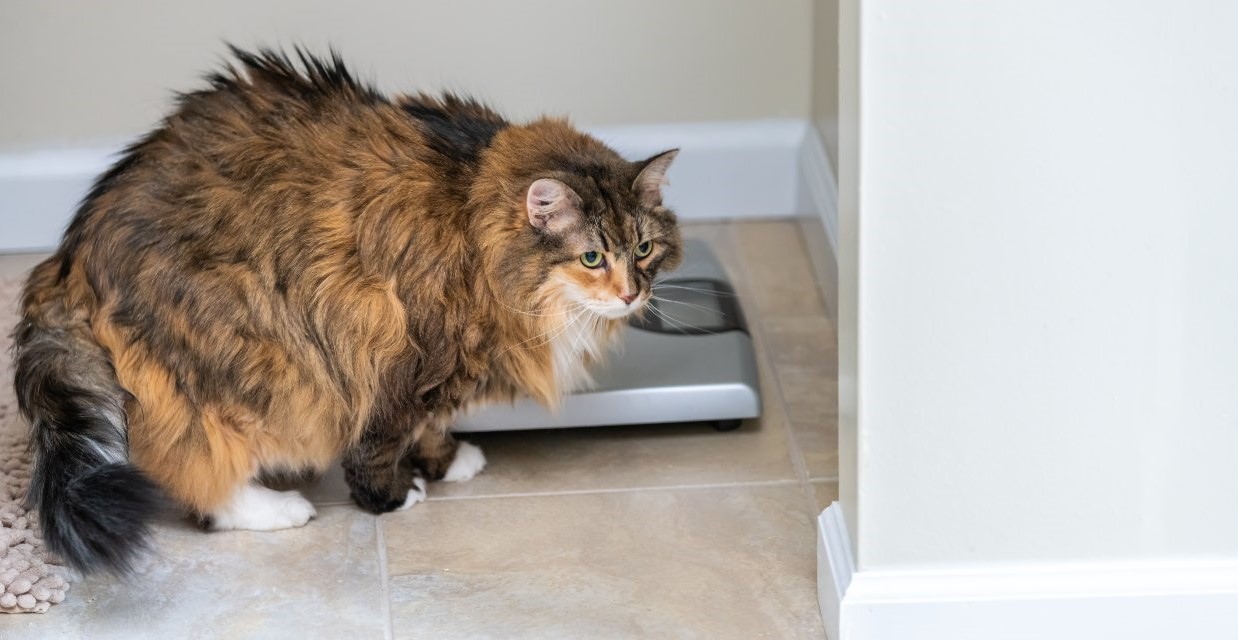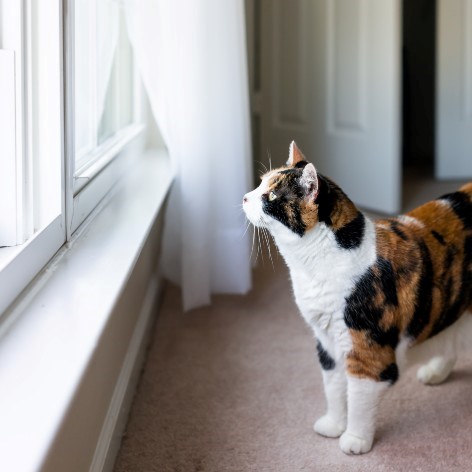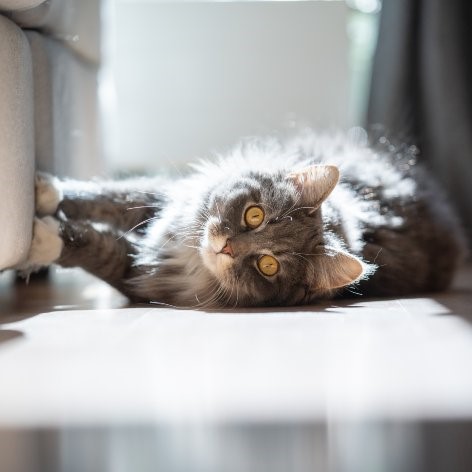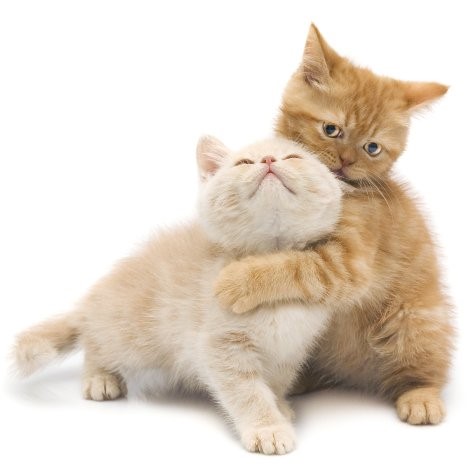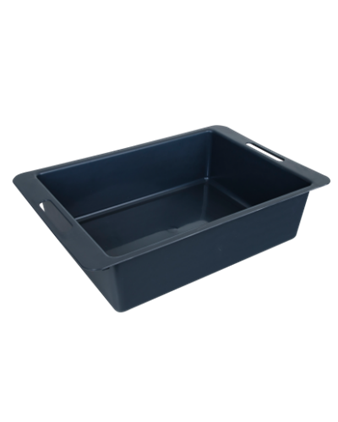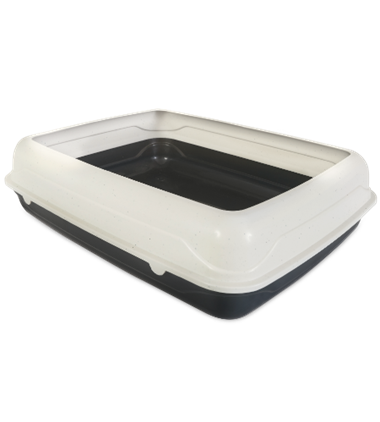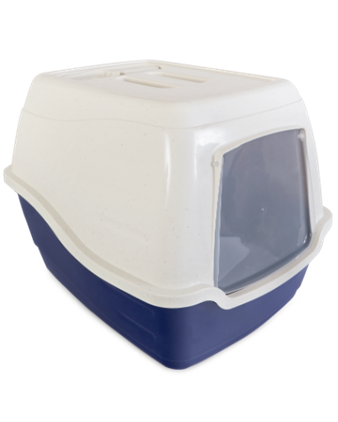It seems that just like people, cats can fall victim to an obesity epidemic. And like us, the cause of excess weight gain in a cat is most often eating too much and not enough exercise!
Being overweight can be associated with many health problems in cats, such as:
- Diabetes
- Liver disease
- Urinary tract and gastrointestinal tract disease
- Arthritis
Being overweight may also reduce your cat’s ability to groom properly and move easily.
These are both very important for happy & healthy cats.
The cure for an overweight cat is simple. Reduce the calories they eat and try to increase the amount of exercise.
Weight Management Programs
The goal of a good weight management program is gradual weight loss. This is especially important in cats, because severe nutrient restriction can result in liver problems.
As a guide, for most obese cats, weight loss should be about 0.5-1% of their obese body weight per week.
However it’s important to consult with your vet before even thinking about putting your kitty on a diet to ensure that all health factors are taken into account.
Five Tips to Help your Cat Lose Weight
- Weigh your cat on accurate scales. This is best done at the vets, where staff can also advise you on the amount to feed, expected weight loss and general care.
- Ensure your cat is on a healthy & premium diet. Speak to your vet about how to safely manage your cat’s weight loss without jeopardising the nutrients that they need for good health.
- Paying attention to recommended daily portions. It can also be a good idea to divide these daily portions in to smaller meals spread over the day. This helps to keep the hunger pangs away and is more satisfying for some cats. Use a kitchen scale to weigh the amount of food you are giving instead of estimating with a cup or scoop.
- Cats should lose 0.5 to 1% of their initial weight per week. Reweigh the cat every week and adjust the food amount to get this safe weight loss: your cat may need slightly more or less food. Cats who do not respond quickly should see their veterinarian again for a special weight-loss program.
- Playing with your cat for 15 to 20 minutes daily may benefit in helping weight loss. Once your cat gets moving, weight loss becomes easier and easier. So grab some cat toys and get them moving!
We recommend always speaking with your vet before you take any significant actions to help your cat lose weight.


